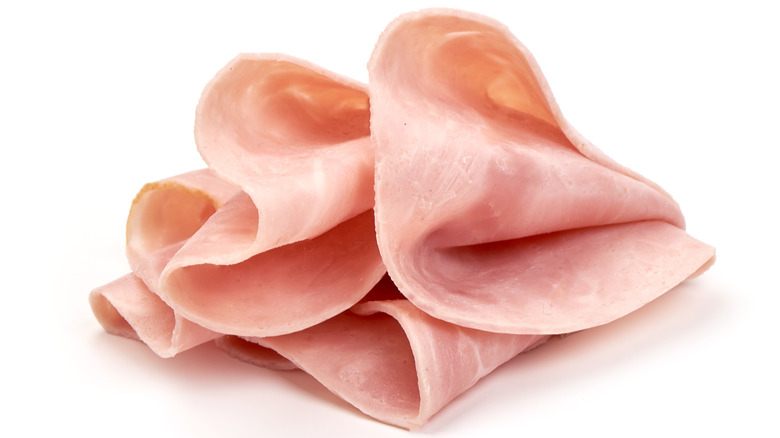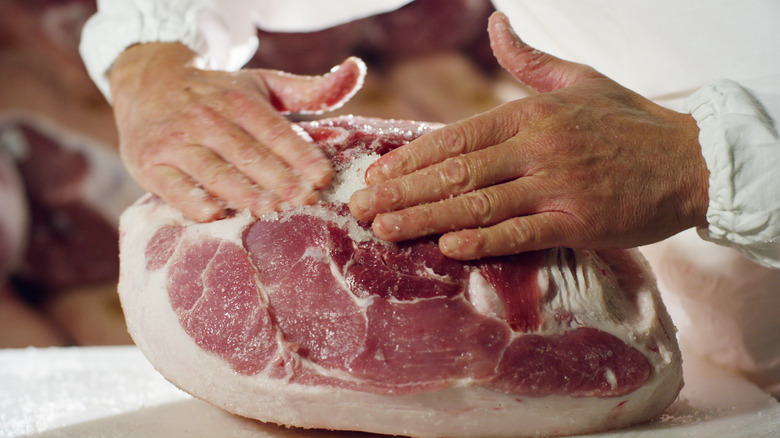Cured Vs. Uncured Ham: What's The Difference?
Ham is the most popular cold cut in America, according to survey data from Statista. Yet, despite its high standing in our kitchens, what actually goes into the production of ham is a mystery to many consumers. It may have something to do with the fact that, unlike other popular sandwich meats such as turkey, ham is something most of us have never and will never make from scratch. Even if you want to make your own glazed ham, you'll almost certainly be starting with a ham that was already smoked and cured by a butcher.
As far as the behind-the-scenes magic of making ham is concerned, many of us have a good grasp on the concept of smoking meat, especially with barbecue restaurants being ever-popular features of food and travel channels. What we hear a lot less about is the curing process. What does it even mean? The ham is "cured," but of what? Measles? Mumps? The summertime blues? It's none of the above, of course, though curing does serve an anti-bacterial purpose. Here's what the deli really means when they talk about cured and uncured ham.
Both types of ham are technically cured
At its most basic level, curing refers to the practice of preserving meat through the addition of salt and nitrates, chemical compounds that protect the meat from bacteria while also changing its color (via Volpi Foods). Nitrates may be synthetically made or naturally derived from vegetables, and this is where we find the real difference between cured and uncured ham. Tender Belly reveals that, despite its name, "uncured" ham actually does undergo a curing process to preserve it, but instead of using synthetic nitrates, it bathes in a brine made with the juice of naturally nitrate-rich produce such as celery or beets.
While cured meats have a longer shelf life than uncured meats, some people are attracted to the natural process and more nuanced flavor afforded by the latter method (via Tender Belly). In cured meats, the nitrate is often replaced by synthetic sodium nitrite, which can convert into a carcinogenic chemical called nitrosamine, per the BBC. Some have suggested that uncured meats avoid this problem, and France even proposed a ban on cured meat as a result. Unfortunately, The Washington Post reveals that even natural, vegetable-derived nitrates can undergo the conversion to nitrosamine in the presence of protein. That's why Healthline recommends limiting your intake of processed meats in general and balancing them with fresh meats.

